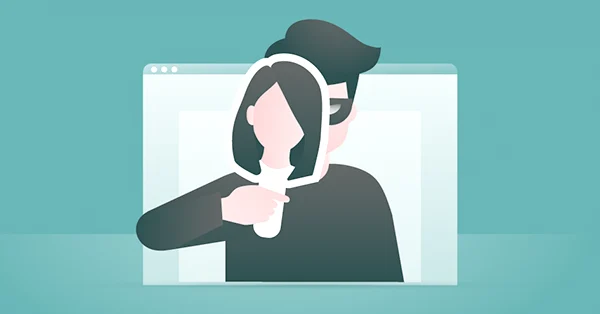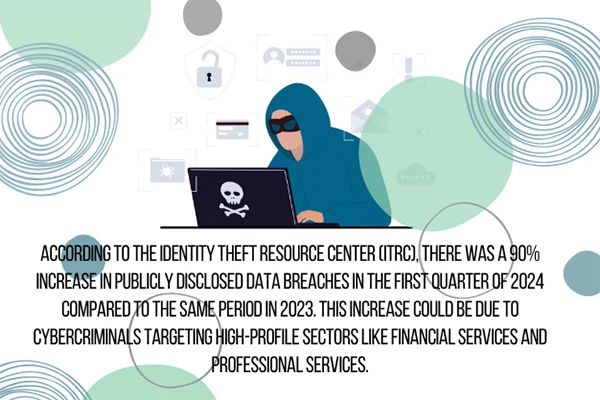Identity Theft in the Age of Information: Risks and Remedies
We live in a time when information can be sent or received publicly with just a couple of clicks. But while there is convenience, there are also risks. Bad actors and criminals today also have an online presence, and they want to steal your precious personal information.
And the most precious thing that these people try to steal is your very identity. In a world where you do everything online, protecting your identity online is that much more important.
In this article, we will answer the question “what is identity theft” and discuss some of the most common ways criminals use to steal your identity online. We will also share with you some potential remedies so you can protect yourself.

What Does Identity Theft Really Mean?
Identity theft basically means that someone (not you) is unlawfully using your identity, personal information (like your name, or social security number), credit card data, or any other sensitive, personally information for their own purposes. And this all occurs without your knowledge. It pretty much means that once the criminal has your information, they can use your identity carte blanche, for any purpose they so desire.
For example, that extra credit card you don’t remember ever signing up for, or all those extra loans you didn’t even get. Yes, this kind of thing can happen, and has happened, to a lot of people.
Identity theft can be devastating not only to the person targeted directly, but also for their family. There are many cases of families being torn apart because of financial insecurity, fear of leaked addresses and other unlawful uses of personal information. So how can you really protect yourself from identity theft?
DID YOU KNOW?
While identity theft may seem like a modern problem, it actually goes back centuries. The earliest recorded case of identity theft occurred in 1865 when a man named William Thompson stole the identity of a prominent New York City businessmen by convincing bankers he was Mr. Thompson and securing loans in his name.
What are the Risks of Identity Theft?
Cybersecurity and its risks are a growing concern for private citizens and companies alike. When unmitigated, the consequences of identity theft can be quite heavy. Just imagine that there is a person out there using your personal info to take out loans left and right. All the while, you are actually the one who will be on the hook for paying off those loans. Sounds scary, right?
This is what identity theft can do. It can wreak havoc on your life, not just financially but mentally too. And all of this is just scratching the surface.
What if the thief uses your identity to commit a serious crime? Thankfully, you do not need to be scared, there are ways you can protect your identity from being stolen in the first place.
How to Protect Yourself from Identity Theft
There are just so many ways a cybercriminal can use your stolen personal information, that it can be difficult to keep track of. Below are some practical steps you can take to save yourself the headache of falling victim to this crime.
Don’t Share Any Personal Info Online
You need to be more cautious when you post something online, or over the phone.
Criminals can use this information to map your whole life out and it becomes even easier for them to steal your information.
As a precaution, you can just set your social accounts to private or limit who can see or access your profiles. But still, minimizing what you share with your online friends is the first step.
Use Strong Passwords
Hacking is another way criminals steal your identity. You need to protect your online accounts. Therefore, you must use strong and unique passwords for each of your accounts.
Also make sure to avoid using easily guessable passwords like your birthdate or pet’s name and consider using a password manager to keep track of your login credentials securely.
Monitor Your Accounts Regularly
You know strong passwords will only take your online security so far. Thieves can still get hold of your financial or other sensitive information in some other way.
So, you need to regularly check in with your banks and credit card statements. Look to see if you have any transactions you don’t remember making or some unusual activity in your accounts.
And lastly, report any suspicious charges or discrepancies to your financial institution immediately.
Do Not Just Click on Every Link
Phishing is a pretty common way for cybercriminals to steal information.
They can hide keyloggers and malware in links they send to their unsuspecting victims.
Always verify the legitimacy of the email or message before you click on any funny-sounding or too official-looking emails.
And if it’s too confusing, some antivirus software comes with built-in fraud detection these days, so let the software perform a scan on the mail before opening it.
Alternately, you can also safely use an online AI scam detector to verify your messages, emails and links for free.

Conclusion
The internet is filled with tons of personal information, which makes it a treasure trove for cybercriminals and thieves. Protecting personal information in the digital space is increasingly a challenge, even for experts.
You need to know what identity theft is and how it works to be ready to protect your information. By staying vigilant and using safety measures, you can reduce the risk that cybercriminals pose to yourself and your family.
